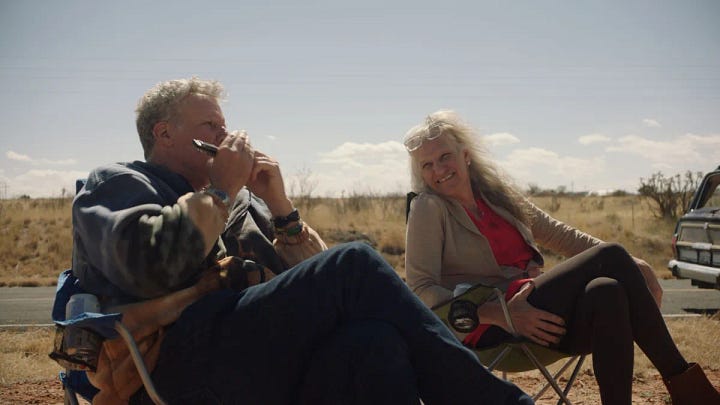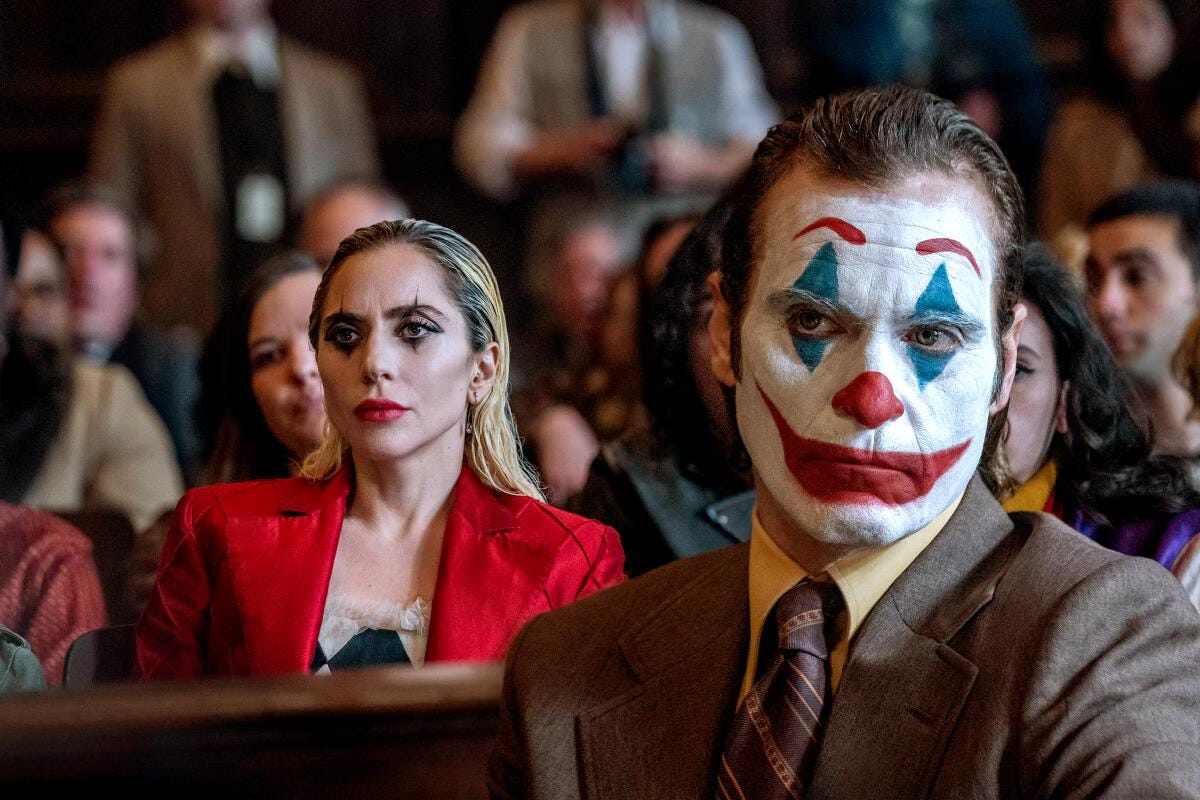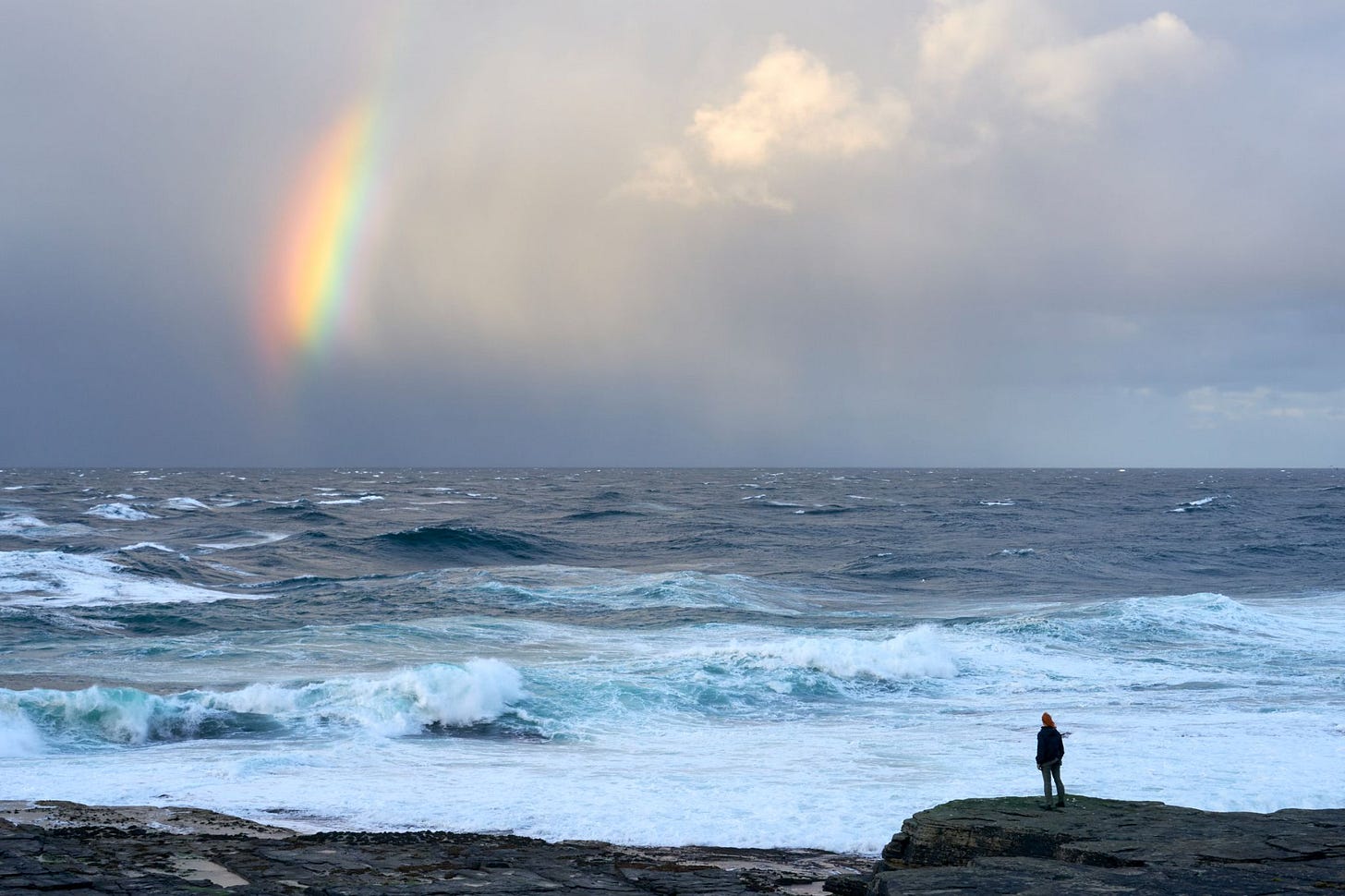Monday new releases: 7 October 2024
Joker: Folie à Deux, The Outrun and Runt are in cinemas, Will & Harper is streaming on Netflix




There’s some unseemly glee among my international colleagues about the box office fate of the new Joker movie. Based on the opening weekend, estimates are that it will end up with a theatrical gross of less than 25 percent of the original on a budget almost four times as big.
Sure, that’s got to hurt for what many still mistakenly consider to be just a comic book movie, but I take no pleasure in films not finding an audience while cinemas are struggling to stay afloat. When we lose a picture theatre – like the Paramount close to home – chances are we never get them back.
But I can’t help but feel that there is some karma in effect this time – that Warner Bros. Discovery is suffering because, on one hand, they’ve allowed the sacred Looney Tunes logo and music to be used for the opening animated flashback sequence in Folies à Deux, while at the same time – in an act of breathtaking corporate hypocrisy – the brains trust at the studio chose to trash Coyote vs. Acme for the tax write-off rather than release it.1
So, what to make of Joker: Folie à Deux, then. A sequel to the phenomenally successful gritty reimagining of the DC comics supervillain origin story – a film that won Oscars for Joaquin Phoenix (Best Actor) and Hildur Guðnadóttir (Best Score) – it takes two big swerves away into a new direction. It introduces Lady Gaga as Lee Quinzel, some actual love interest for Phoenix’s lonely monster Arthur Fleck. And the filmmakers decided to illustrate the inner lives of the characters, and their relationship, by giving them songs to sing and dance to.
I don’t have a problem with any of that, at least conceptually. I can also accept those set-pieces being long and unexciting as thematically appropriate, even while I’m checking my watch.
I finally watched Joker for the first time this weekend and proximity, I think, makes the pair more interesting than I expected. This is a pair of films that tries to portray mental illness, and society’s cavalier attitude towards it, with some sympathy.
The new movie is about consequences and Arthur Fleck/Joker is about to go to trial for his crimes. His lawyer, played by Catherine Keener, is determined that proof of mental incapacity will keep him from the death penalty and urges him to play up that aspect of his story.
But, of course, both sides of the argument can be true at the same time. Joker was clearly insane at the end of the first film but the Arthur Fleck we meet in Arkham Asylum at the beginning of part two knows what he has done and seems prepared to accept his fate. All of this is helped tremendously by Phoenix’s compassionate commitment to both truths.
It’s the arrival of Quinzel that tips Fleck over the edge once more, an example of both films’ deep-seated misogyny as she turns out to be a toxic combination of super-fan and manipulative gold-digger.
This morning I read this terrific article in the Spinoff about New Zealand’s inadequate care for those suffering from mental illness and how easily people can fall through the cracks of a well-intentioned system. I found myself thinking about Phoenix as Fleck and his portrait of an abused and traumatised, lonely little boy turned into a lonely little man.
I’m probably reading too much into this but I do think, once all the fuss about the box office and how audiences don’t want musicals has died down, we might find that there is more to these two films than meets the eye, even though director Todd Phillips and co-screenwriter Scott Silver do lay it all on a bit thick. Sadly, this Joker overplays its hand.
Even the best films can fall prey to spelling things out a bit too obviously at times. In Nora Fingscheidt’s adaptation of Amy Liptrot’s memoir The Outrun, the central character melts down at one point because she can’t find the tiny compass necklace her father once gave her. Yes, we get it. She’s lost her compass. She’s lost her way. But we could see that perfectly clearly throughout, thanks to an astounding performance from Saoirse Ronan as recovering alcoholic Rona, and a script (by Liptrot and Fingscheidt) that deftly moves backwards and forwards in time to show us Rona’s descent and fragile rebound.
She has moved from the Orkneys, north of Scotland, to London – largely to escape the pressures of her parents’ broken relationship. Her father (Stephen. Dillane) is in and out of care for his bipolar disorder and her mother (Saskia Reeves) has dedicated herself to God.
After hitting the lowest of low points – the film is unsparing in this regard – Rona returns home and attempts to maintain her sobriety with the help of the islands themselves – the land, the birds and the stories.




